
Data support the quadruplet regimen as a new standard of care for transplant-eligible patients.

Data support the quadruplet regimen as a new standard of care for transplant-eligible patients.
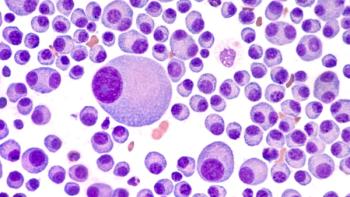
There is a significant efficacy-effectiveness gap in standard-of-care regimens.

Presentations detail clinical trial results and focus on drugs in the pipeline.

In the Augment-101 phase 2 study, 63% of patients experienced overall response rate with revumenib.
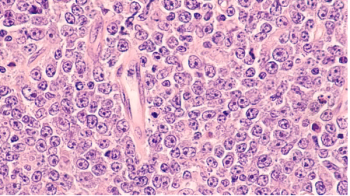
This therapeutic could work for diseases of the B cell receptor signaling transduction pathway that do not respond well to single-agent BTK inhibitor.
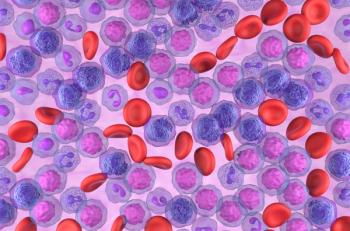
According to the findings, the use of venetoclax, as well as other new therapies, improved overall survival from 28.6% to 45.3% in non-Hispanic Black patients with AML.

Expert discusses positive, real-world findings from a claims-based study looking at this therapeutic.

Investigators will evaluate prophylactic tocilizumab prior to treatment with teclistamab.

There is progress being made regarding research on immunotherapies and the mutation, which adversely affects a higher number of patients in this population.
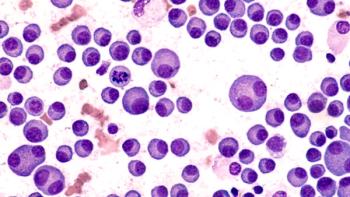
These data support the combination of daratumumab plus VRd followed by daratumumab and lenalidomide maintenance as a new standard of care for transplant-eligible patients.

Compared to placebo plus chemotherapy, quizartinib plus chemotherapy improved OS without significant AEs and impact on QOL in patients with AML.

In a recent study, people who lived in disadvantaged or rural areas were just as likely to receive the second-generation medications as people in urban areas.

However, a survival benefit was observed with using a signaling inhibitor in general for patients with angioimmunoblastic T-cell lymphoma.

The authors note that CAR-T cell therapy could change the treatment standard for patients with DLBCL, who previously had few options if standard chemotherapy treatment was ineffective.
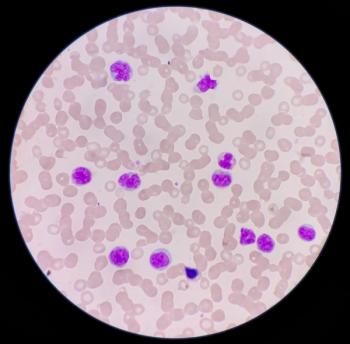
The model may help clinicians identify patients who would benefit from disease-specific therapies or enrollment into clinical trials.

The pharmacist can help patients to manage symptoms throughout the entire treatment journey.

Expert breaks down these findings and more from the GLAMM1 study at the 2023 ASH Annual Meeting.
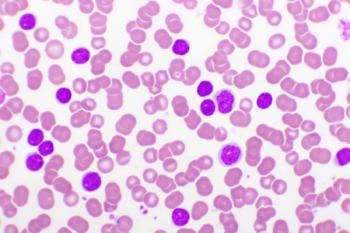
This is the first trial to show that a measurable residual disease (MRD)–guided approach with treatment beyond MRD negativity has a significant advantage over chemotherapy, both in terms of progression-free survival and overall survival.

The study results shine a light on the potential need for further policy changes that promote gender equity and bridge the gap in R01 funding awarded to female applicants.

Median overall survival is set to be more than 2 years, which is more than double the overall survival of current frontline therapies.

He also provides insight for students training in classical hematology, oncology hematology, or oncology pharmacy.

The efficacy of treatments, which is the outcomes in the ideal clinical trial setting, are known to often be better than the effectiveness of those treatments, which are the outcomes of patients in the real-world setting.

The study findings have implications for the identification of novel pathways with which to selectively target folate-metabolism blood cancers.

The president highlights a new curative treatment option for sickle cell disease while also expanding on the changing treatment landscape for hematologic conditions.
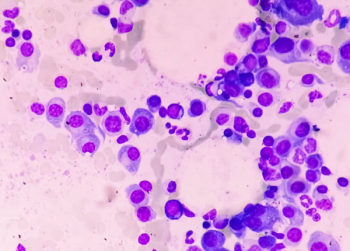
ASH is happening December 9 through 12 in San Diego, California.

Expert discusses the patient-reported outcomes from the GRIFFIN trial at the final study analysis after all patients completed 1 year of follow-up post maintenance therapy.
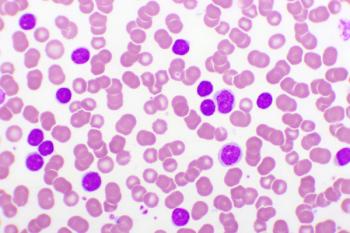
Expert discusses updated cohort of patients with longer-term follow up treated in the phase 2 clinical trial of venetoclax added to cladribine plus low-dose araC alternating with azacytidine.

Expert discusses the updated data for a trial cohort after a median follow-up of 27 months.

Richard T. Maziarz, MD, and a team of investigators assessed average medical costs of allo-HCT throughout a patient’s lifetime and the net monetary savings and value associated with reducing complications.
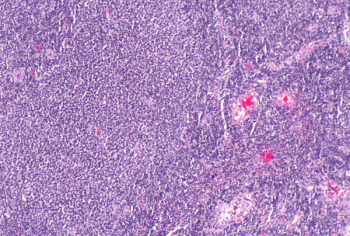
The FDA clinical reviewer responsible for the approval of this combination therapy discusses the data that led to the approval in May 2022.